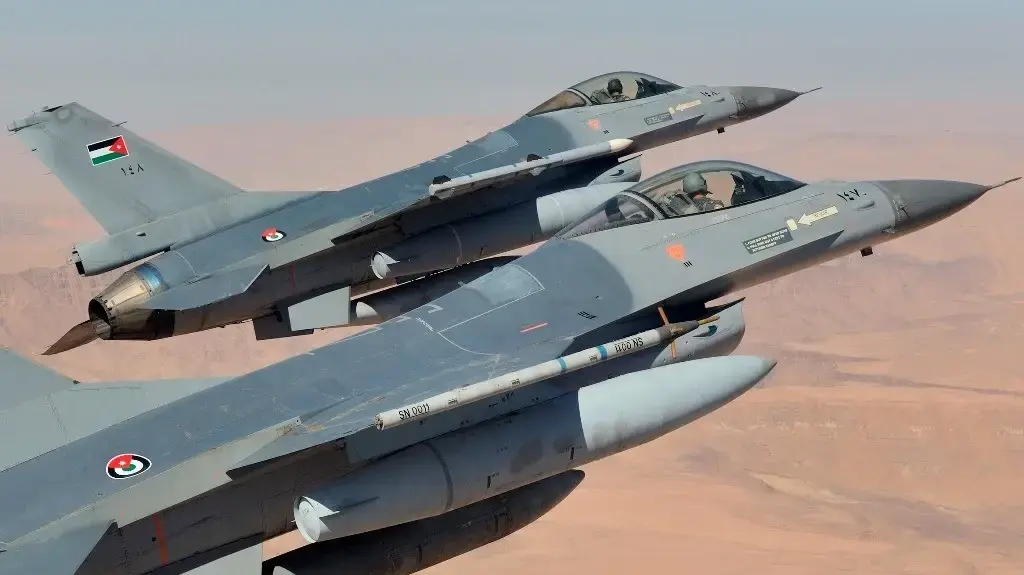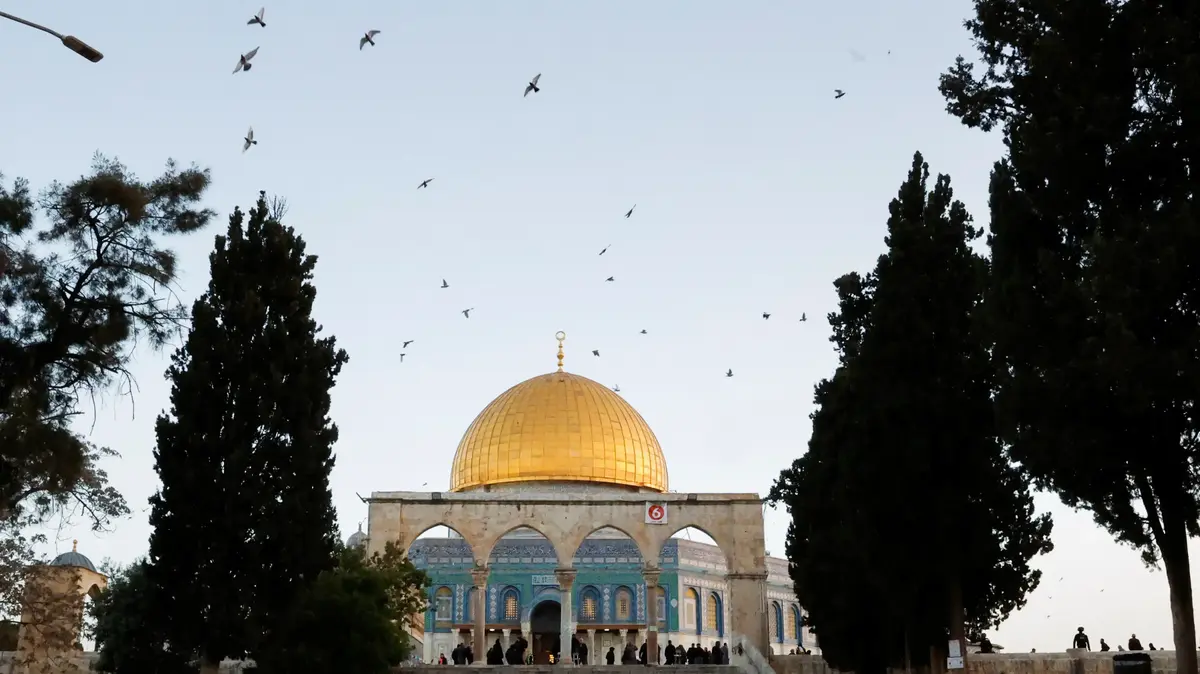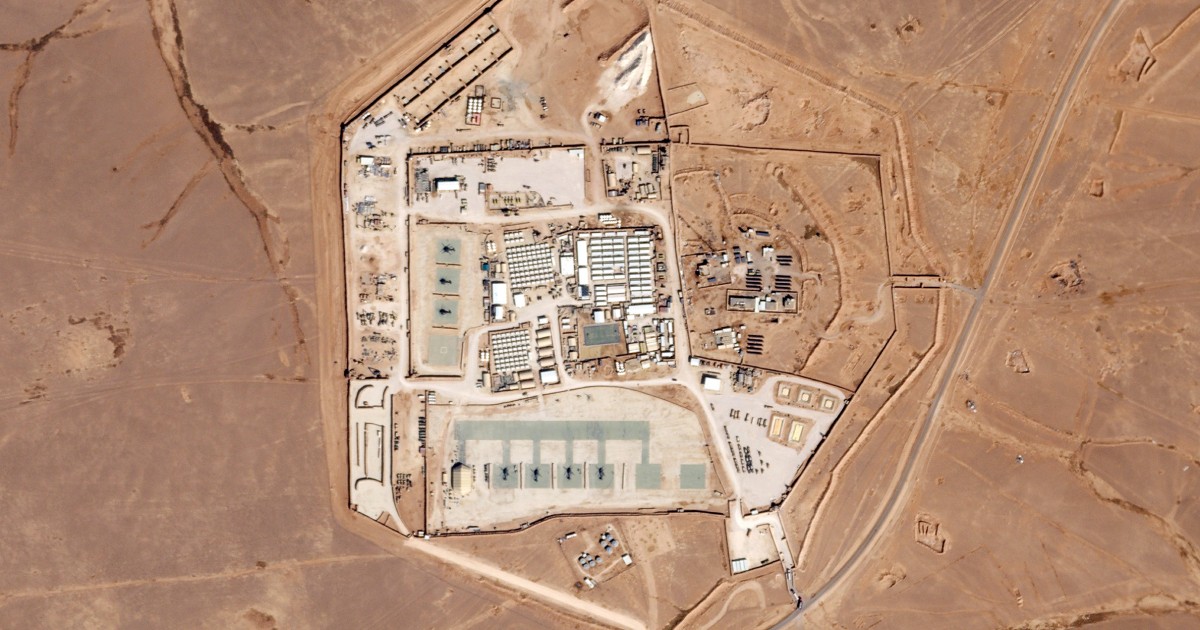Controversy crosses military experts on the repercussions of annexing the Jordan Valley and changing the status quo on the Temple Mount - on the peace agreement with Jordan and coordination with it • Former Israeli ambassador to Jordan recommends full regulation of relations • Century Plan - Challenges from the East
The Jordanian deficit has also made the issue economic. Nahariim enclave after its return to the Jordanians
Photo:
Age of Elijah
Maj. Gen. (res.) Uzi Dayan, once Deputy Chief of Staff, Major General Commanding and Commander-in-Chief - but even earlier the senior liaison officer to the Jordanian army and the head of the security delegation to negotiate the peace agreement with it - has a long mileage with our neighbors to the east. Dayan remembers one night with King Hussein, the father of the current Jordanian king Abdullah, where the king honestly swam to him: "Do you think you live in a small country surrounded by enemies? We are in a bigger problem. We are a small country surrounded by friends. Often they have to be more careful. "
Dayan recalls this moment, and his long-standing cooperation with Jordan, in light of what he calls "intimidations and scare scenarios" scattered by some of his former colleagues in the security system, against the possibility that Israel would annex the Jordan Valley as a "vital security strip for the State of Israel," and more: perhaps in the future Israel will also allow Jews to pray on the Temple Mount, in the spirit of the twisting wording that apparently permits it in Trump's century plan.
"Israel," says Dayan, "enjoys its relationship with Jordan. The Jordanians, to say the least, enjoy equally. Anyone who does not face it does not know this relationship completely." Dayan estimates that "with or without a peace agreement, the Jordanians will think well before they are actually cut off. Israel is one of Jordan's vital national interests, its social security certificate. In 1970, Israel posed an ultimatum to Syria, when it planned to invade Jordan, and in fact prevented a coup It was not the only time we helped the Jordanians maintain the kingdom's stability. "
Dayan does not expand on security and intelligence cooperation with Jordan, but the archive remembers almost everything. According to foreign publications, there is close cooperation between Israel and Jordan at the security and intelligence level, and Israel is bothering to warn Jordan about subversive factors that seemingly jeopardize the stability of the Hashemite regime. Atlantic magazine has previously reported that the Israeli institution has sought permission from Jordan to bomb chemical weapons sites in Syria, and foreign media has also suggested that Jordan will allow Israeli or American aircraft to cross its field on their way to hit nuclear facilities in Iran. Newsweek posted possible attack scenarios on its news site, exploring such a possibility. The United States also has military interests in Jordan. According to publications, the Jordanian Army is conducting joint maneuvers with France, the United Kingdom and the United States.
Dayan notes, however, that Israeli "insurance" works when it comes to external threats to Jordan. "It's difficult to apply when the threat to the kingdom comes from within." Indeed, Jordan is a country with a demographic problem in which there is a Palestinian majority, a strong Muslim Brotherhood and about a million and a half refugees who came from Iraq and Syria who do not add peace to the kingdom. The founders of Jordan on which the government and the army, the Bedouin tribes, originate in the Arabian Peninsula, are now a minority in Jordan. Therefore, the king's high sensitivity not only to external threats, but also to internal threats.
However, precisely because of this, Dayan believes that the Jordanians have an interest, of course, in an Israeli buffer along the Jordan Valley, between them and the Palestinians in the West Bank. "Such an Israeli buffer, even from their point of view, is useful and essential to prevent interconnection between the Palestinians of the West Bank and the Palestinians of Jordan - an interruption that may further exacerbate the threat to the government." Dayan therefore believes that "Israeli law, justice and administration should not be deterred immediately from the Jordan Valley. From the experience and experience, I say that the peace agreement with Jordan is more stable than what is being described, and is a strategic asset for both sides, Jordan is no less than Israel, and therefore the issue of the Valley should go. As far as is good and necessary for Israel. No fear, and hatching is definitely needed. "
"Like the Cave of the Patriarchs"
The second mine in the century-related Jordan plan is the Temple Mount clause, and the possibility for Jews to pray more. Despite the ambiguity that the program broadcasts at this point - on the one hand the continued status quo that prevents Jews from praying on the mountain, and on the other, an American precedent saying that under certain conditions Jews will also pray on the mountain - the Jordanians are very concerned.
The Centennial Plan did, however, retain Jordan's status, enshrined in the 1994 peace treaty with Israel, as guardian of the Holy Places of Islam in Jerusalem, as well as its covert partnership with Israel in managing the Temple Mount. However, the possibility of Jews praying in a contradictory manner, according to Jordan, summarized the agreement reached between the US, Jordan and Israel in 2015, where the informal correspondent status quo that has existed since the Six Day War was raised, and it was registered that Jews could visit the mountain, but was forbidden to pray there. .
Dayan proposes to "take advantage of the opportunity offered by the century plan for the Temple Mount as well, and to immediately adopt the principle that will allow Jewish prayers in the Mount but to be implemented in practice, only in the future, in coordination with the Jordanians. I was the commander of the Central Command. There is an arrangement in the Cave of the Patriarchs that allows Jews and saints to pray There, like him or similar, it can also be implemented on the Temple Mount. This should be done with sensitivity, but in the end it should be done. After all, it is not possible for a resident of Wadi Ara to exercise his religious freedom on the Temple Mount, and a Jew from Jerusalem will be prohibited from doing so. "
So what would you do immediately?
"I would open the mountain for all kinds of tourism, 'citizen' it, for school visits, soldiers, students. Does it make sense to you that on Independence Day, Jews will not be able to say Hillel? Or is it forbidden for Jewish visitors on the mountain to drink from the breezes there, 'for fear' they are "That's why changing the status quo in the mountain, which the Century Plan is opening for, doesn't seem to make much sense to me. It just has to be done to the maximum of sensitivity and coordination."
One of Dane's company members in the Jordanian issue is Major General (res.) Yaacov Amidror, also the former commander-in-chief, who also served as the head of the military research division and as military secretary to the defense minister. Amidror wants to mention a few "fundamental truths regarding our relationship with Jordan": "The border with Jordan is the longest and quietest of the State of Israel. Any change in the kingdom can violate this unmistakable silence. Jordan, in its existence, functions as a buffer between us and the trouble to the east: Iraq, the Iranians in Iraq, Syria and ISIS. If Jordan becomes a bridge state with no interest in quiet on the border with Israel - all these troubles will flow to us. Therefore, an effective and strong Jordanian government, whose interest in quiet along our border must overlap our interest. "
President Trump and King Abdullah // Photo: IP
Amidror says: "The legitimacy of the Hashemite regime rests in part because it manages to represent not only narrow interests of the Bedouin tribes, but also wide interests of the entire Palestinian population. Its legitimacy also stems in part from the fact that the Hashemite House, the only family among Arab rulers. Directly derived from Muhammad; the only remaining family still has a role in the traditional line-up of the family taken by the Saudis - the third place-keeper in holiness to Islam - al-Haram a-Sharif - the Temple Mount.
"Given the question, and Jordan creates a buffer between us and hostile elements and mostly successfully prevents terror along our border with it and saves us bloodshed," Amidror explains, "we need to do everything to strengthen the government there and not weaken it. And now we have to decide whether we are alienating the Jordanian government, which also acts in its own interests, in order to achieve things that are important to us. "
Amidror believes that "applying Israeli law on the valley is provoking the Jordanians in the sense that they cannot say that they agree and will have to do something to show their street that is not ignored. This street could jeopardize the stability of the government there. It is important that we apply sovereignty over the valley now and how important it is now to maintain stability in Jordan, which is a very vital interest for us. They decide what is more urgent and important now. "
"The mountain cannot be contained"
On the Temple Mount, Amidror is even more emphatic. "This matter concerns the legitimacy of the rule of Jordan," he explains, "if we exercise the right of prayer there, as mentioned in the century plan, the legitimacy of the Jordanian government will be harmed. I, as a professional, say that from the Jordanian perspective - Jewish prayers on the Temple Mount is a serious event If the Jordanians, on the one hand, come to the conclusion that as a result of Jews praying on the Mount they are on the verge of losing their legitimacy as a government, they will not hesitate to give up security cooperation with us. The annexation of the Jordan Valley may be possible; .
The complex relationship with Jordan and the dilemmas facing it that the century plan provides are also accompanied by a crisis in economic relations between the countries. The opening figures for the Jordanian economy are bad: its natural resources and other sources of income are meager. Unemployment is high - 18 percent, and especially among young people - 42 percent.
The Jordanian state budget deficit reaches NIS 40 billion, and aid from the United States and Gulf states reaches a few billions each year. Jordan exports to Israel about 5 percent of its annual exports, but its large ventures with it, anchored in international understandings and agreements - are stuck.
The "Canal of Days" project, which aims to transfer water from the Red Sea to the Dead Sea, save it from dying and on the way to irrigate Jordan and the Arava - is not being promoted. The Jordanians accuse Israel of delays. About a year and a half ago, Israel acknowledged that the economic benefits of the project were questionable and transmitted a lot of sourness about it ("Back to the Canal," "Israel Week," November 22, 2018), but Jordan, suffering from a severe water shortage, made Israeli calculations less interesting. Agreements should be respected, they say, and Americans back them up.
Jared Kushner, Jason Greenblatt and US Ambassador to Israel David Friedman spoke to Prime Minister Benjamin Netanyahu about the canal. Tzahi Hanegbi, the Minister of Regional Cooperation, tried to advance a discussion and practical decisions in the government. Q for an election period limits its promotion.
These instructions also inhibit the operation of the bubble, an extra-territory opposite Kibbutz Tirat Zvi, in which a joint industrial zone for Jordan and Israel is to be established as a free trade zone. On the Jordanian side, the project is promoted; On the Israeli side, it is partially promoted, as the access road to the Israeli half is incomplete. Here, too, the ongoing election year hinders execution.
In contrast, the large gas deal between Israel and Jordan probably overcame the many obstacles on the Jordanian side. This is a 15-year gas supply agreement for the Jordanian electricity company (40 percent of its energy consumption), which will bring about NIS 10 billion to Israel and the whale drilling.
King Abdullah found it difficult to convey the agreement in the kingdom, and the statements against the agreement in the Jordanian parliament were some of the difficulties that were heard regarding relations with Israel. One member of parliament, Tariq Khoury, even called on the citizens of Jordan to blow the pipelines that would transport natural gas from Israel to Jordan. "We will all become martyrs," he declared.
Two other issues that have plagued Israel-Jordan relations over the past two years are the Jordanian decision that has already been implemented not to extend lease agreements with Israel in the Nahariyar and Horn areas, and the deadlock to which talks about the Mercy Gate on the Temple Mount have been turned into a mosque. Israel opposes this, but avoids any forceful action to bring the situation back to normal.
In light of all this, King Abdullah's statement last November echoed that "Israel-Jordan relations are currently in the worst state ever," and his warning that "applying sovereignty over the Jordan Valley region could violate the Jordan-Israel peace treaty."
"Getting into a Squeeze Mode"
Gen. (res.) Gershon Cohen, formerly the commander of the colleges and the commander of the Northern Corps and the General Staff Corps, recommends that some of the military personnel refrain from annexing the Baka as an intelligence recommendation only. "The statesman is the one who makes the intelligence," the priest explains. What I see is ongoing Jordanian blackmail. The Jordanians forced us to remove the magnometers from the gates of the Temple Mount, humiliated us with rivers and horns and now insolence, after doubling their water quotas, insisting on getting them directly from the Sea of Galilee and refusing to allow us to stream water through the Jordan River to Nahariim to improve the ecological condition of the river, and get the water Only in Naharayim. "
Cohen makes it clear: "We work for the Jordanians, the Americans work for them, the institution works for them and they still charge us fees. Where is reciprocity? The payment is constantly increasing, and we have put ourselves in a squeeze situation. It should stop."
In contrast, Oded Eran, the former Israeli ambassador to Jordan, has a more conciliatory spirit toward the Jordanians. In a recent paper published by the Institute for National Security Studies, Eran states that "developments in the Middle East over the past decade have only strengthened Israel's interest in maintaining Jordan's stability." He says that precisely because "Israel has a significant impact on Jordan's ability to cope with some of the challenges it faces ... Israeli strategic thinking, along with Jordanian and Israeli willingness to avoid provocative moves - despite internal pressures in both countries." Eran recommends a comprehensive and senior level dialogue, the purpose of which is to have a full set of relationships.









